BULGARIAN SOLITAIRE
This is a nice and simple example of a finite dynamical system, just like the 3D Game of Life. It is finite because only a finite number of states are possible.
In addition, it is not exactly a game either, because there is a precise rule of what we have to do and no choice is given to us, that is, despite the name, it is not a game of solitaire.
At first, we distribute a certain number of blocks into piles of arbitrary sizes (for example, if we have 10 blocks, we can divide them into two piles of 5, into ten piles of 1, into three piles: one with 7, one with 2 and one with 1, etc.). The rule is simple: you must take a block from each stack to build a new one, that is, if the zero state is two stacks with 5 blocks, in the next step, we will have two stacks with 4 and a stack with 2. Then we repeat the rule again and again...
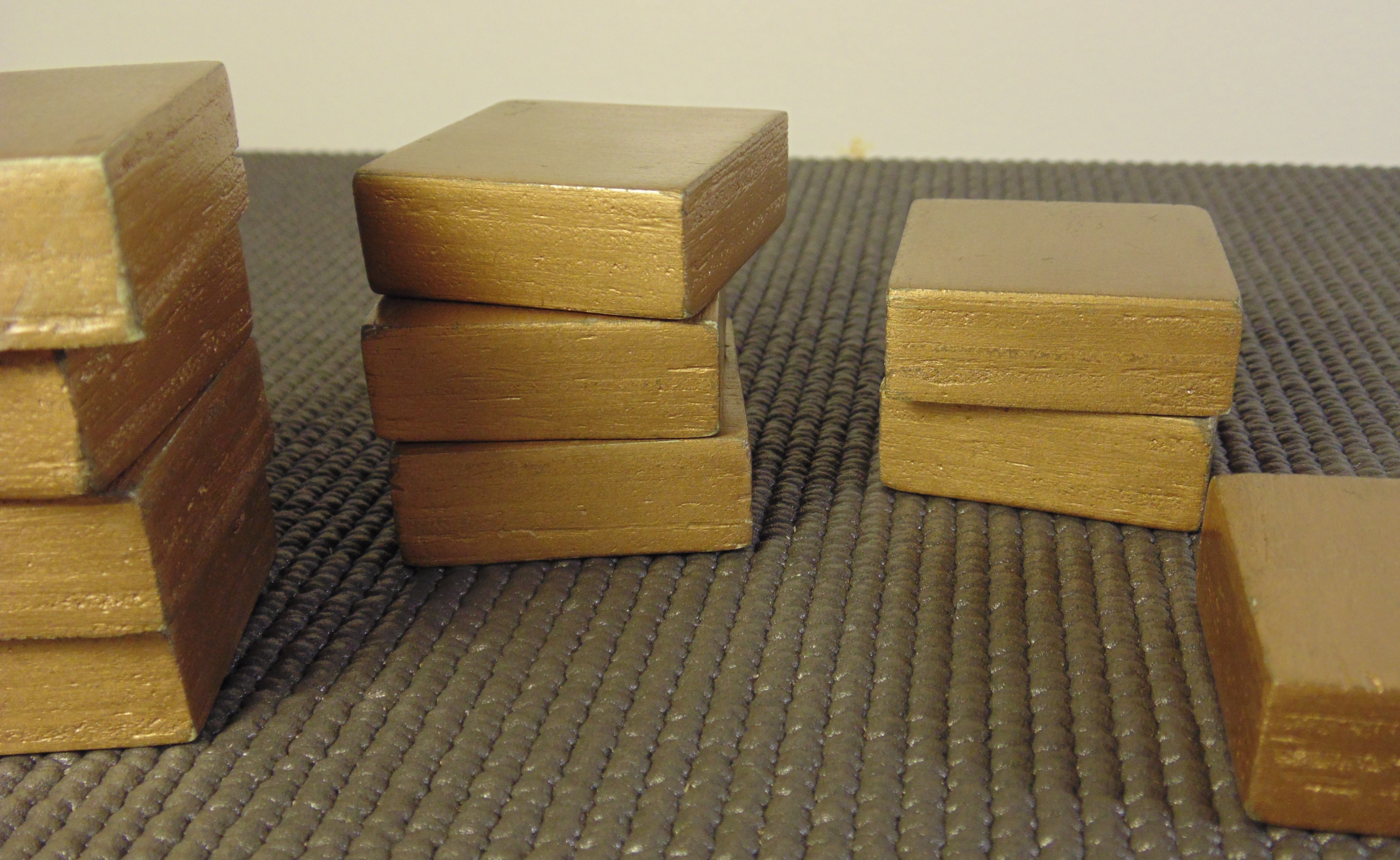
The interesting thing is to try to understand what happens when we repeat the rule many times. As there are only a finite number of states, at some point none will repeat and you will be stuck in a periodic cycle. This cycle can have period 1 (in this case it will be a fixed point) or have period greater than one.
The photo sequence below is an example of an iterated sequence with 10 blocks starting from any position (the zero state), from which the rule is applied several times. Note that the last configuration is repeated, being called fixed point.
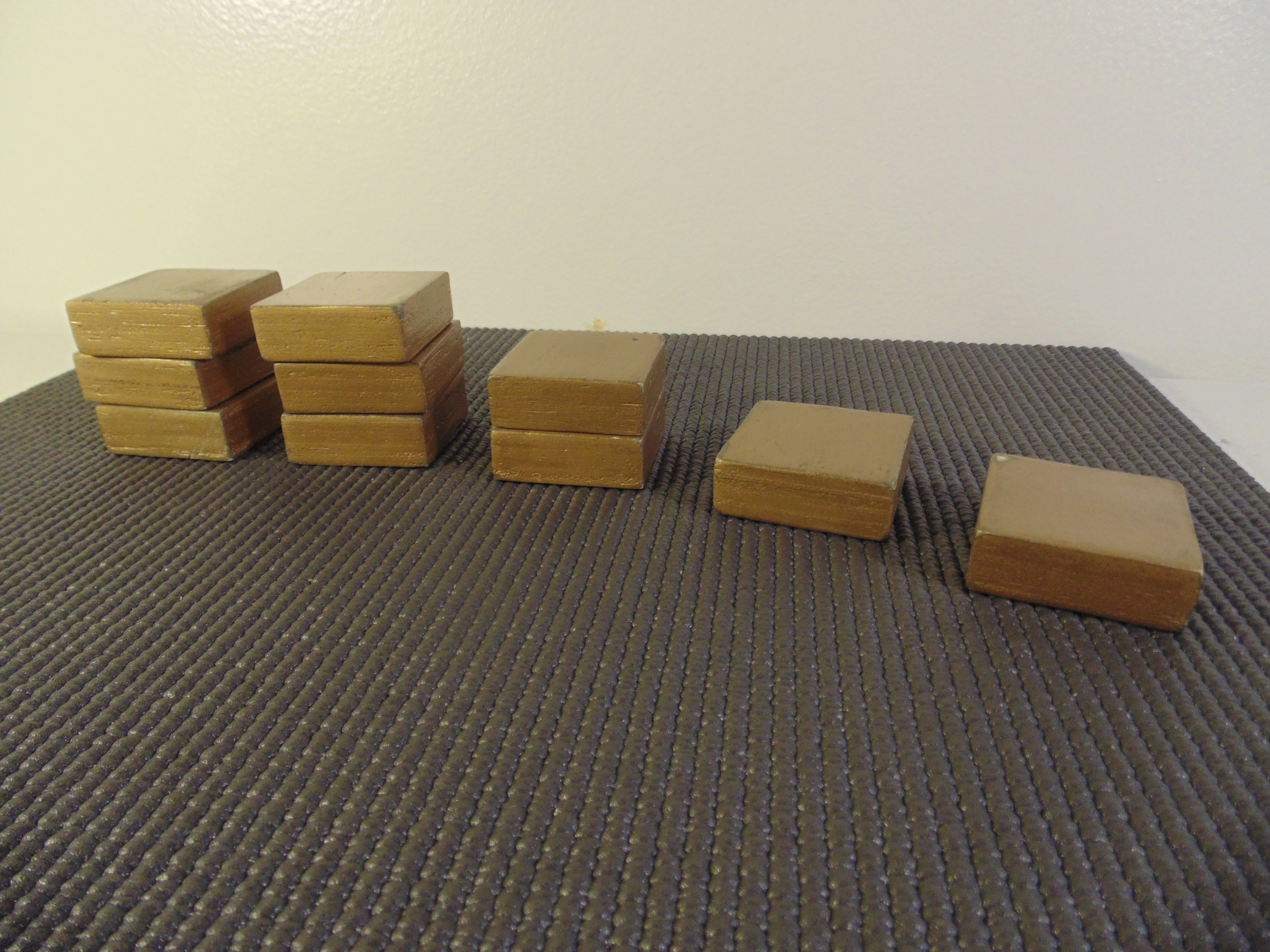
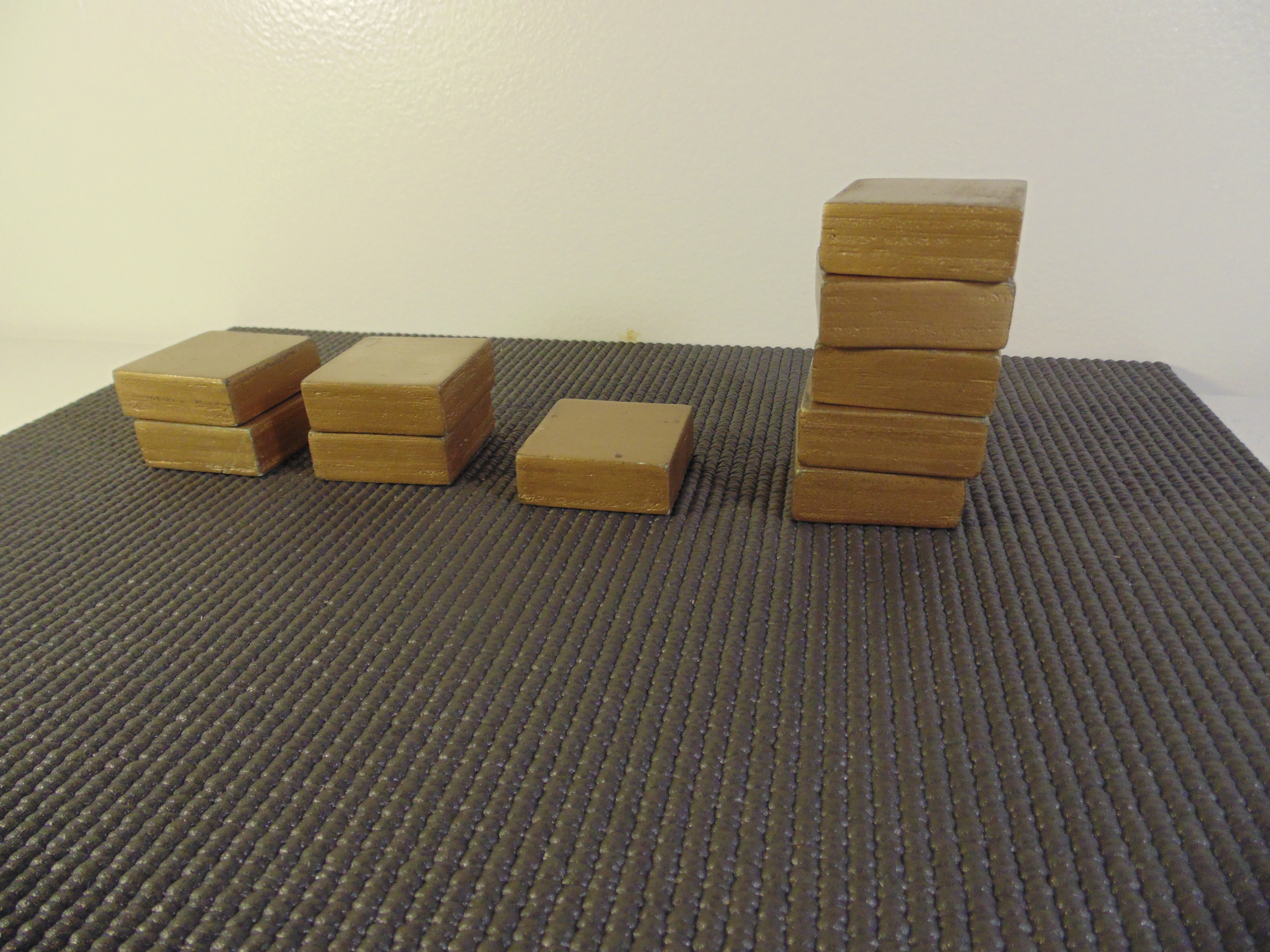
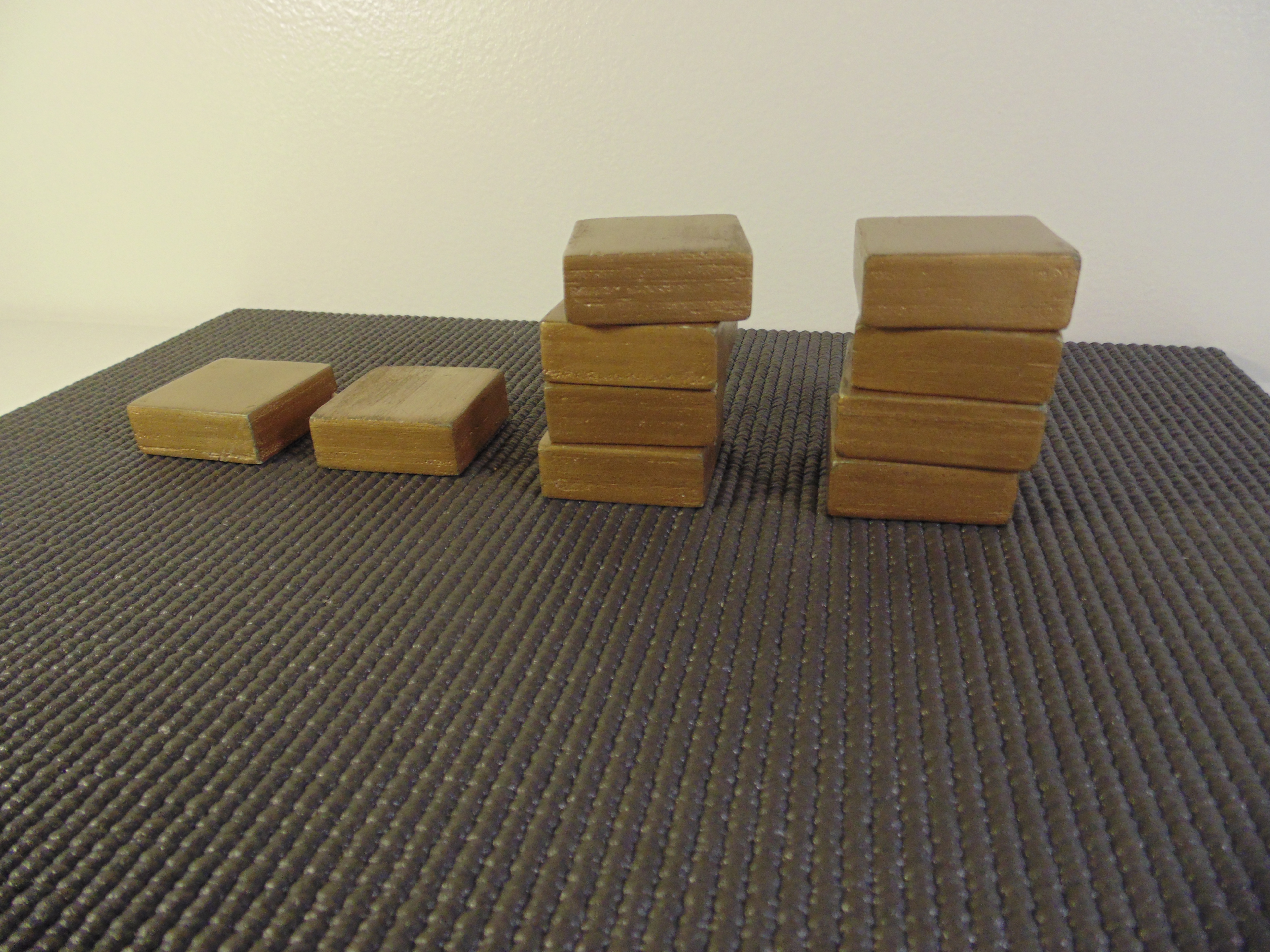
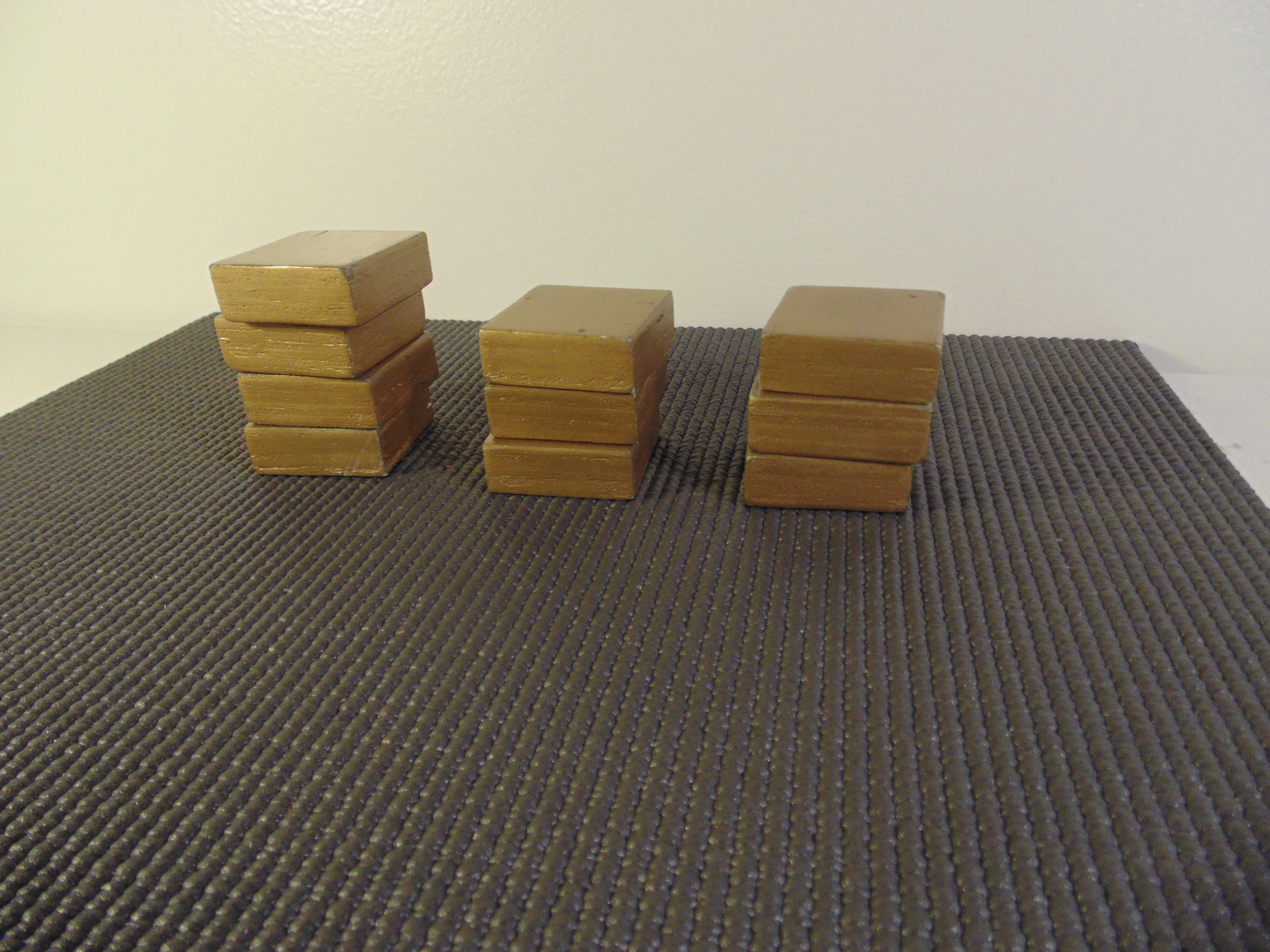
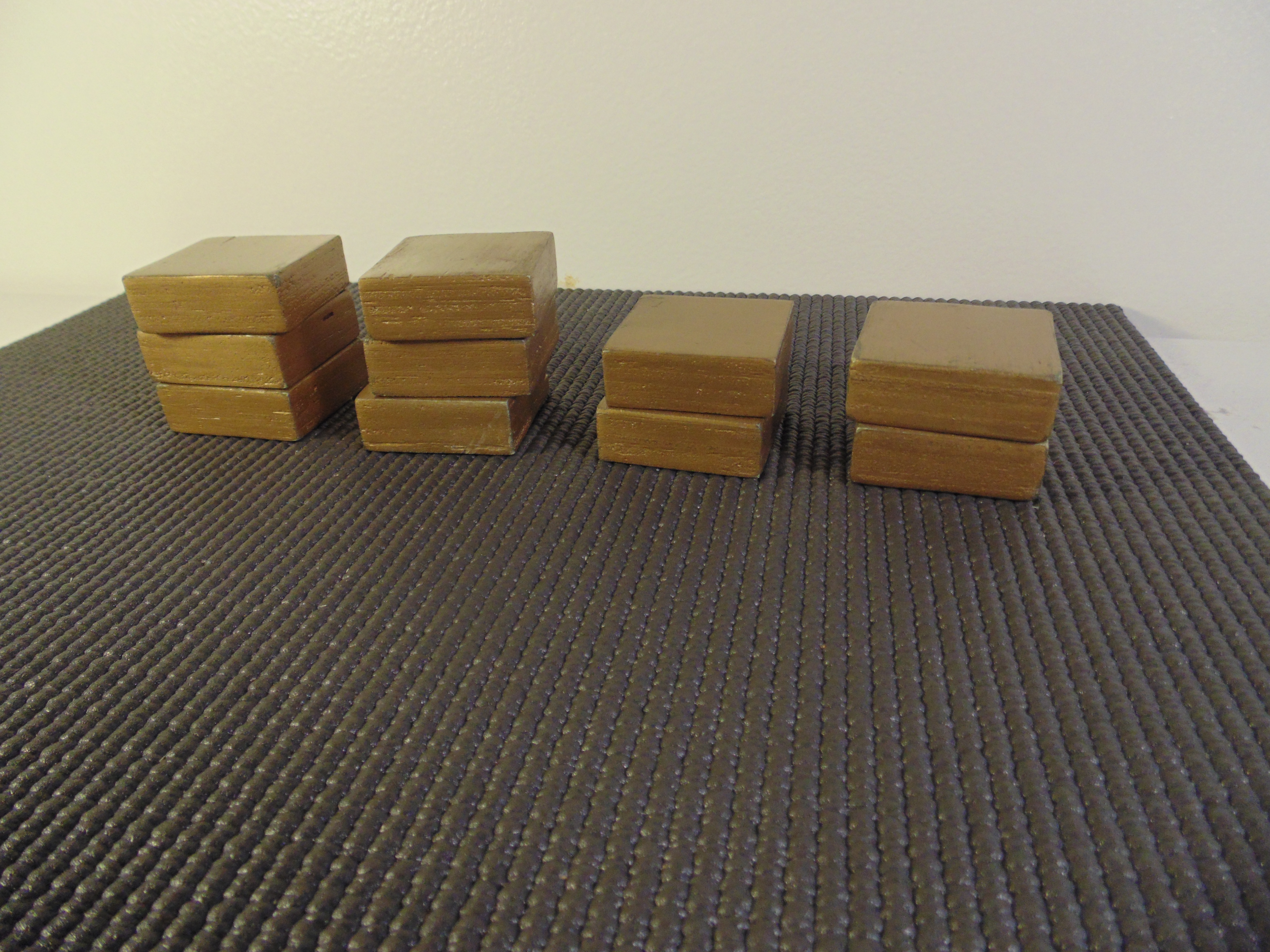
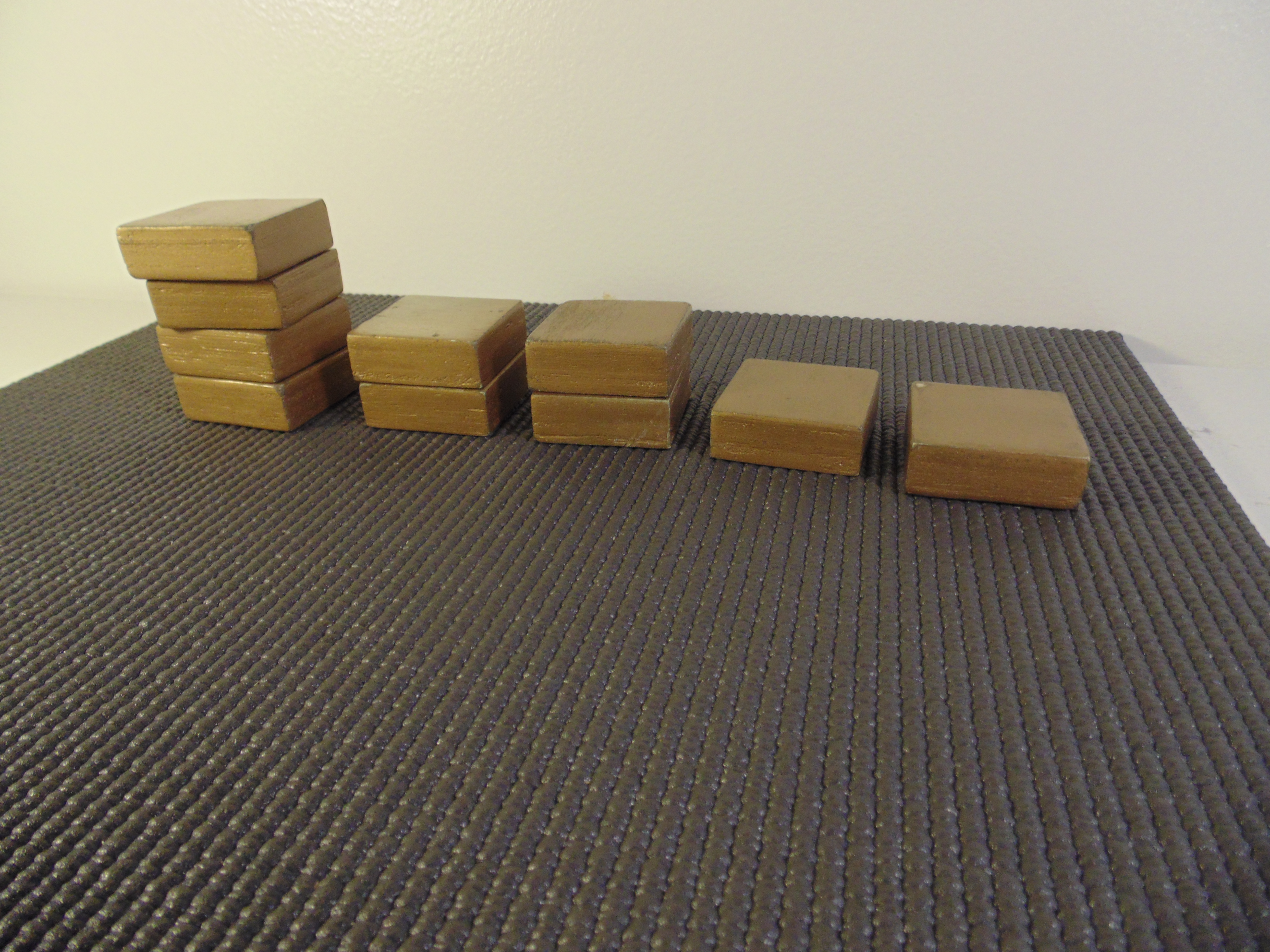
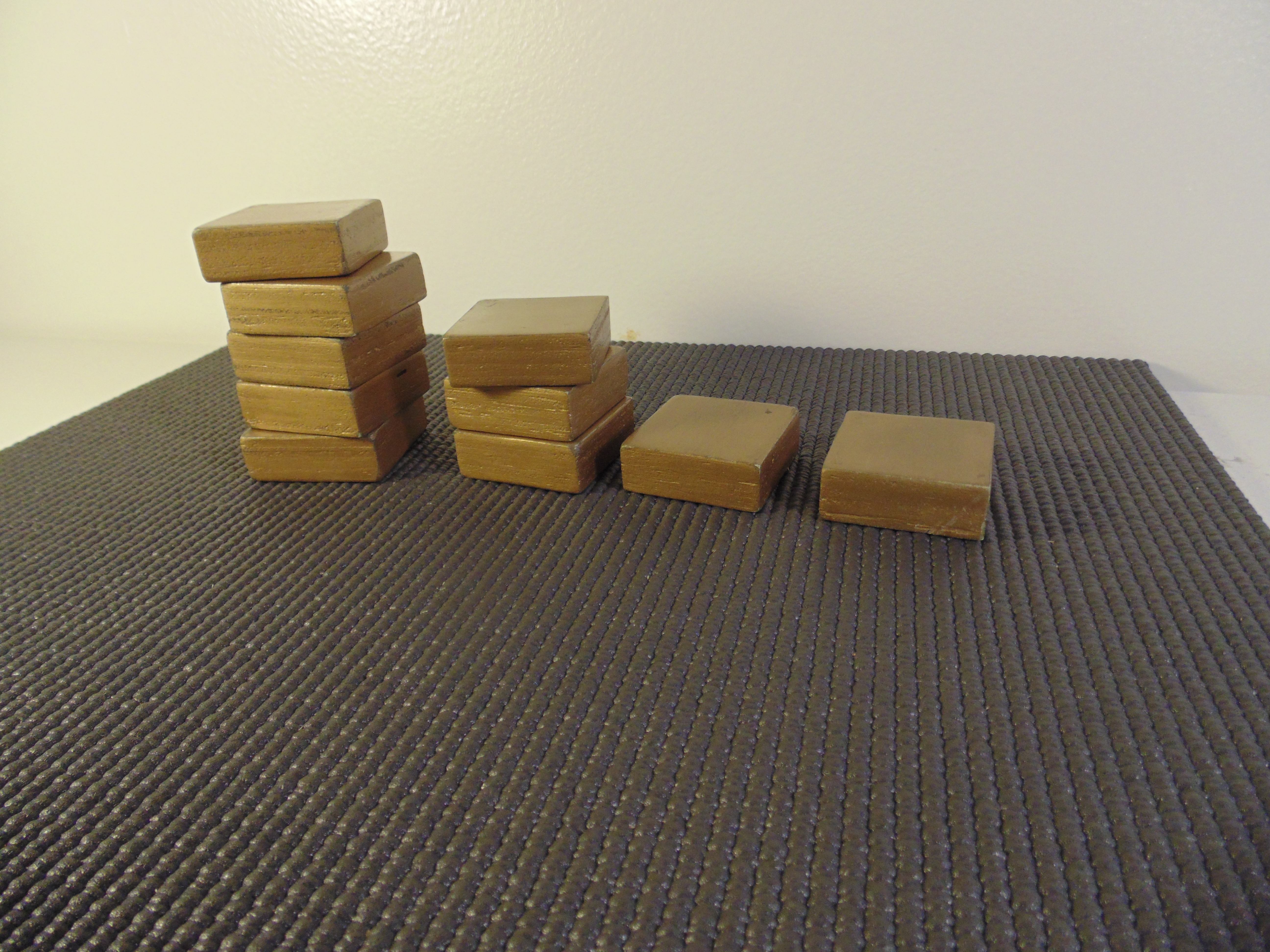
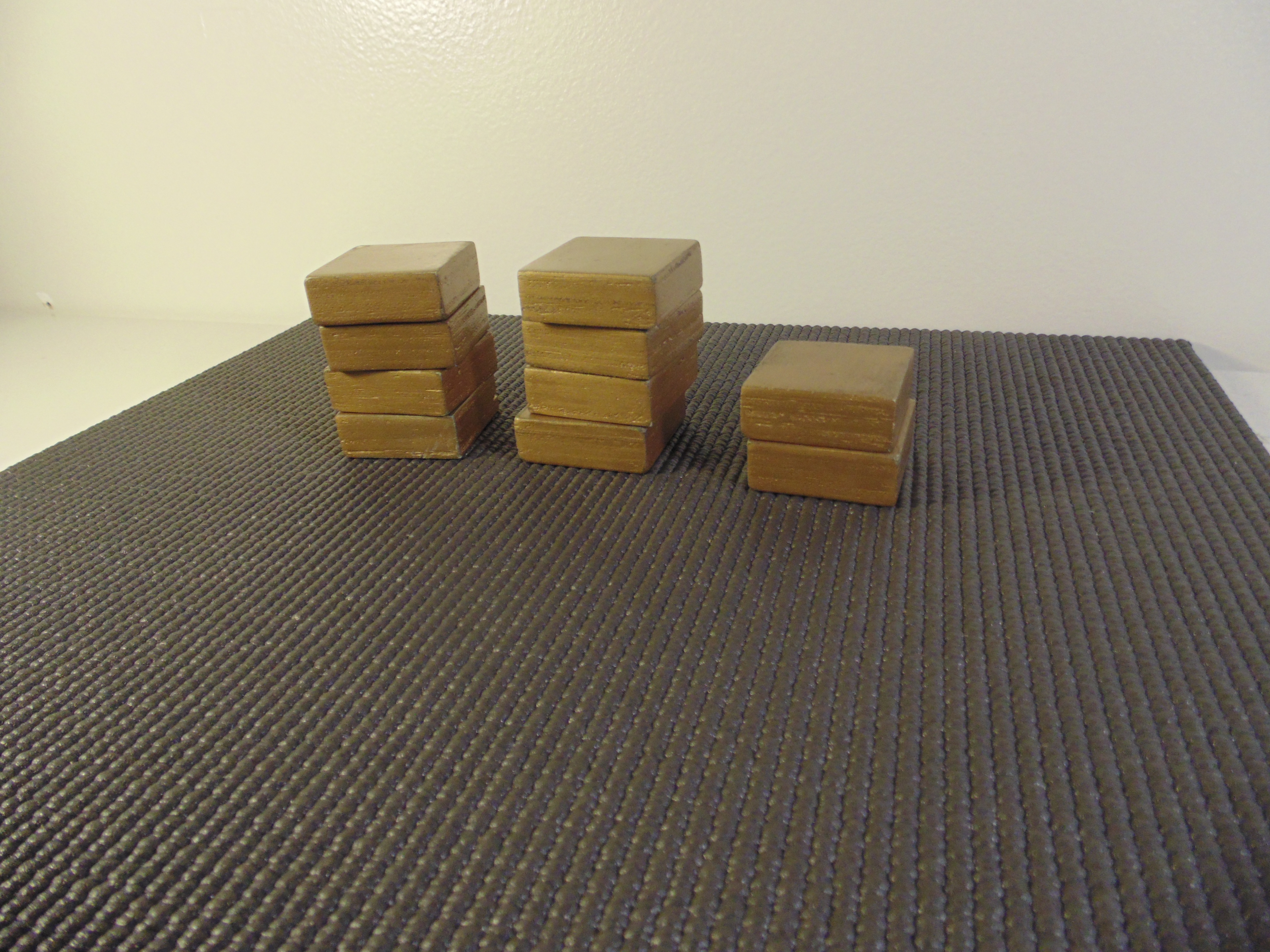
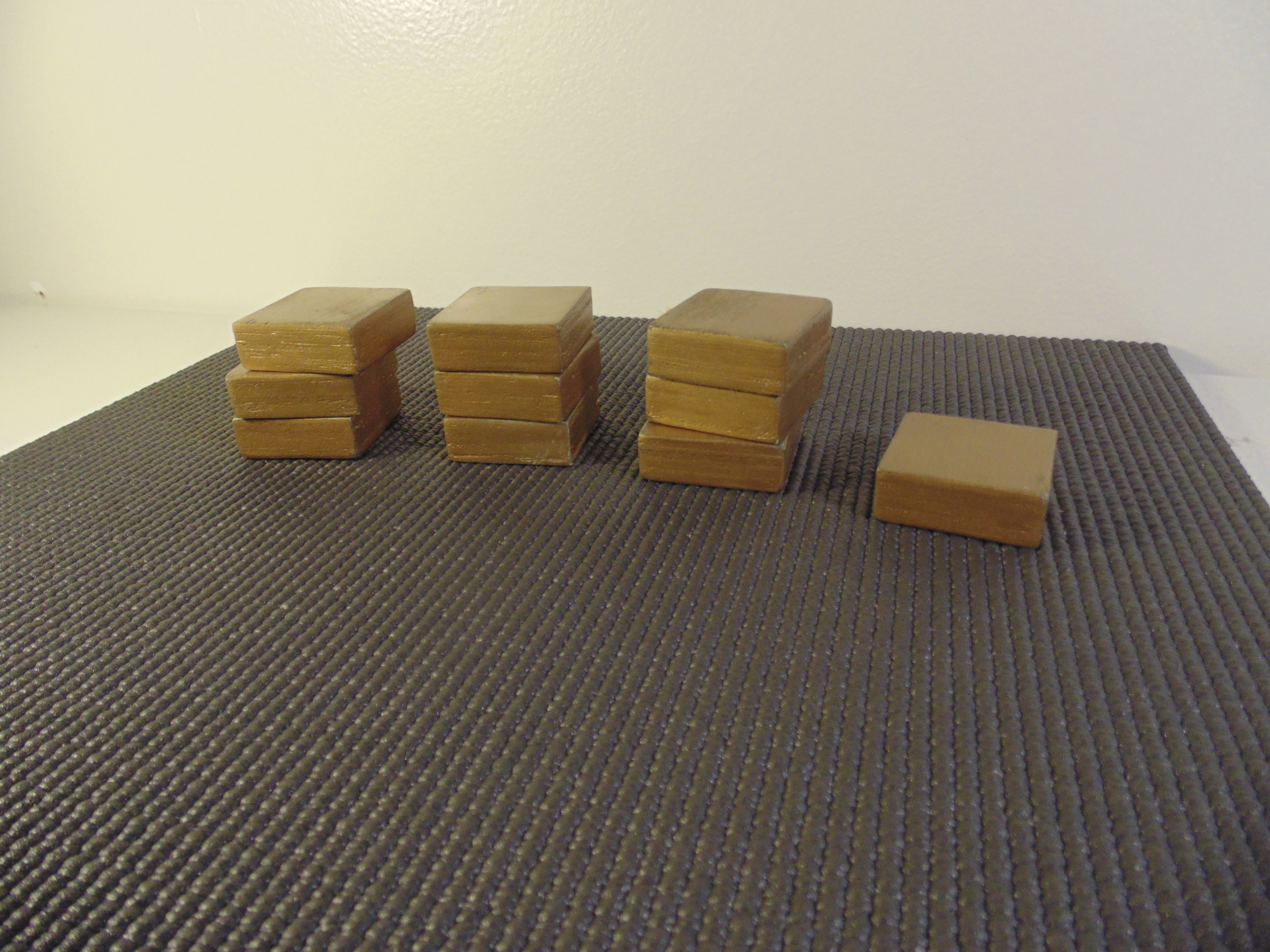
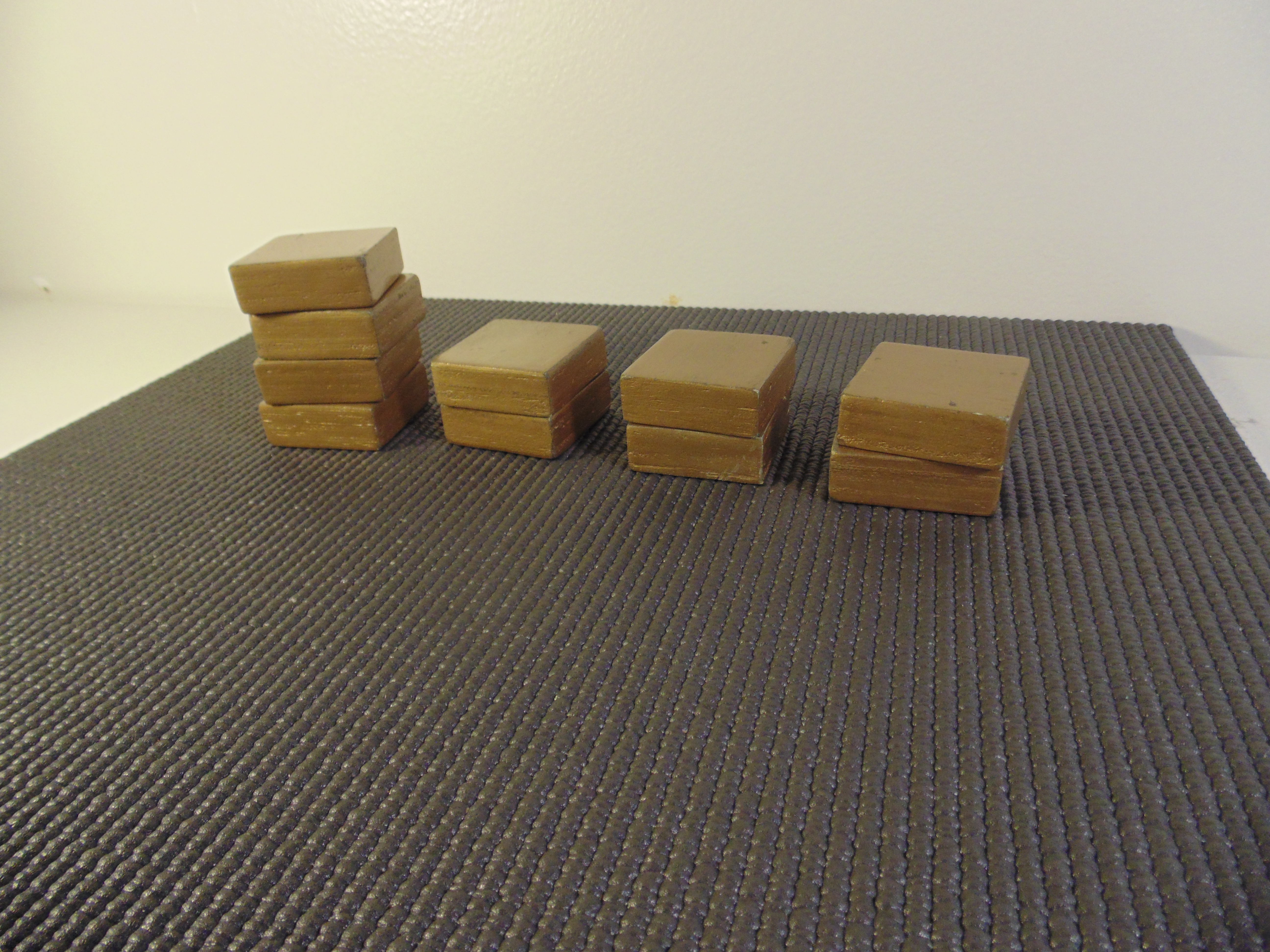
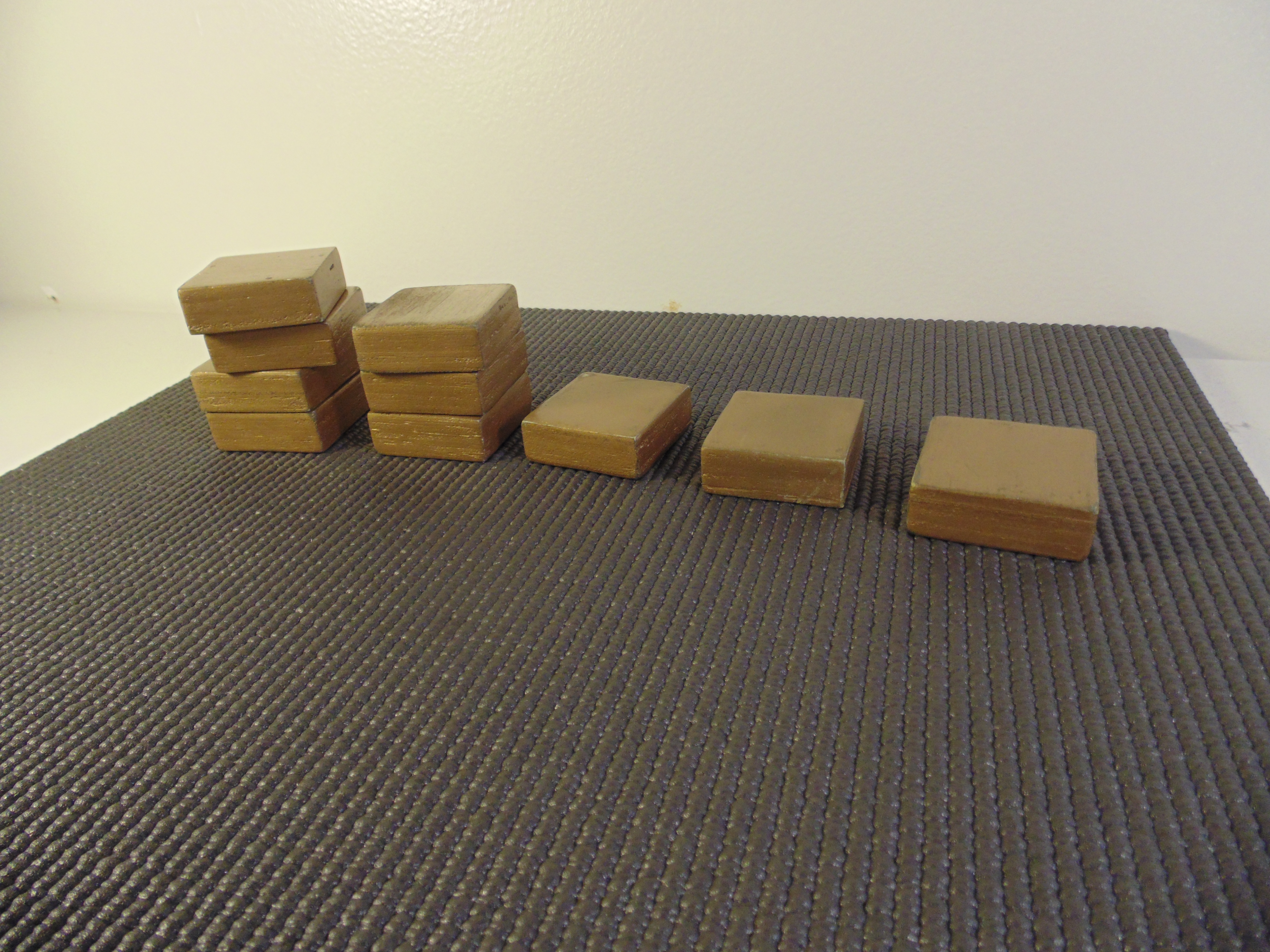
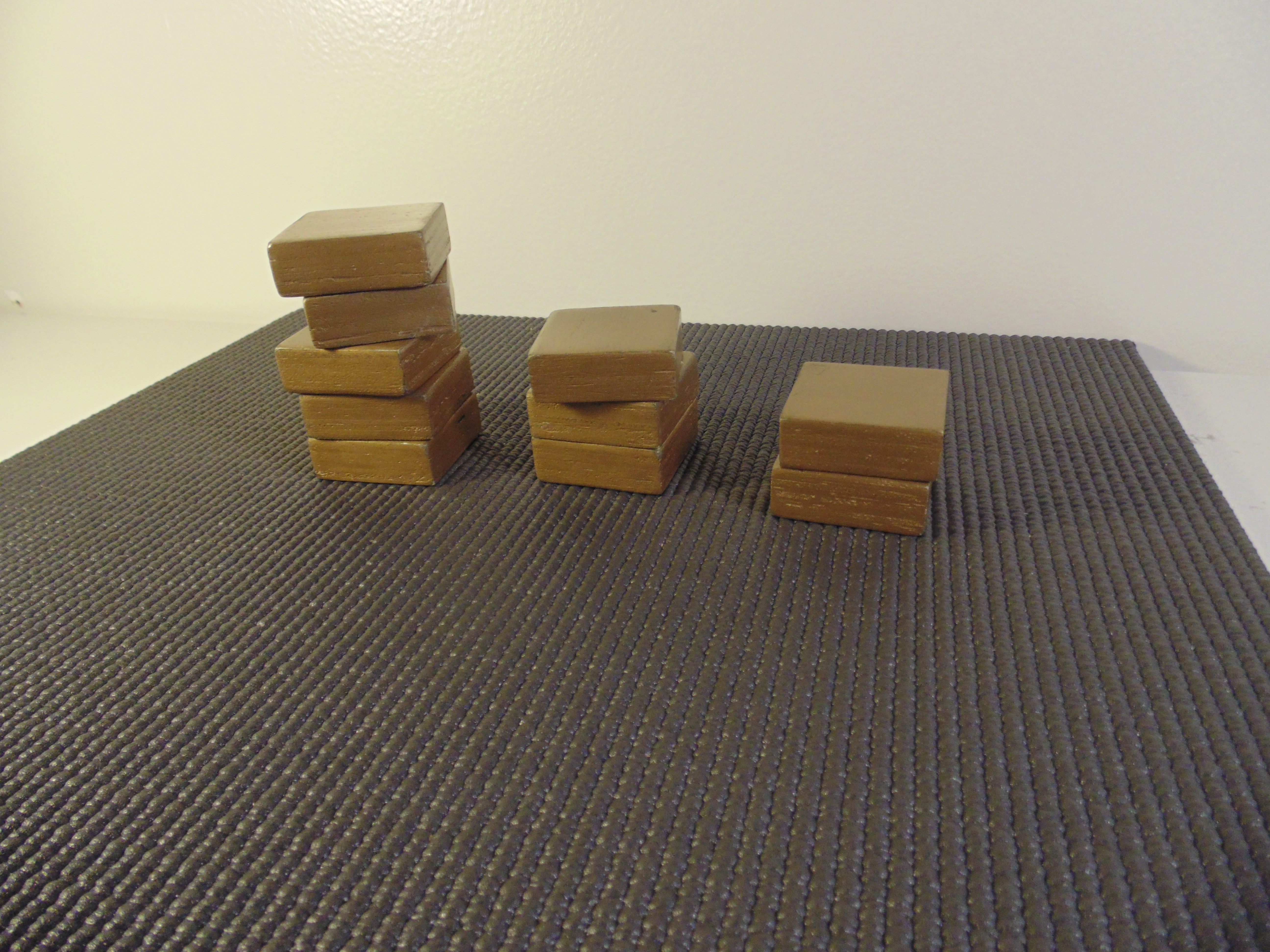
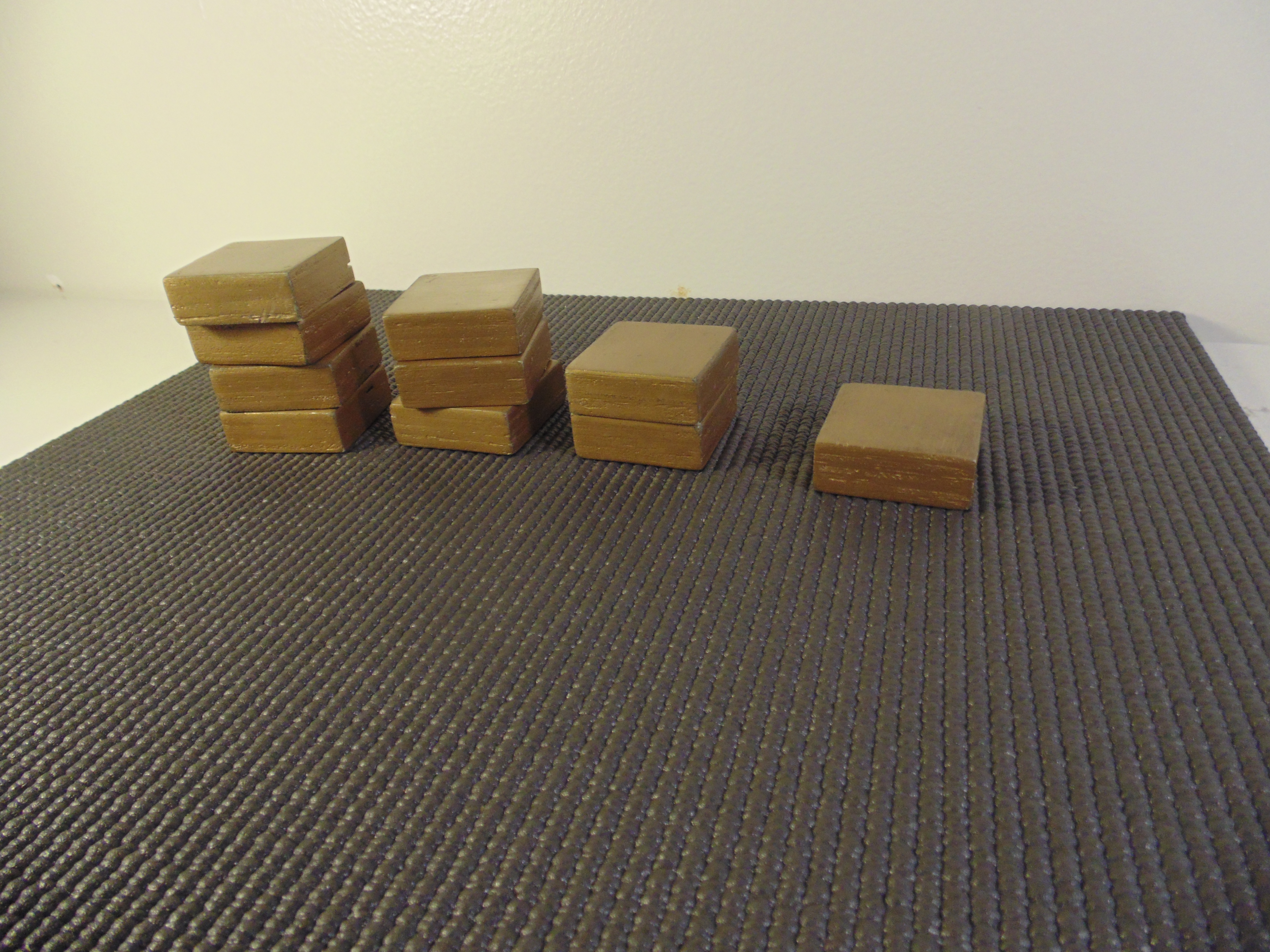


This is a simple game to play. Get chips, or soap, or anything you can stack, and play around! Start by fixing a number of blocks and test different starting positions. What happens? What if I change the number of blocks? Test, write down, make your conjectures and theories!
If you want to see a little more about this game, check out the video below! Seize the opportunity to check out the other cool videos on Matemateca's channel on YouTube!
